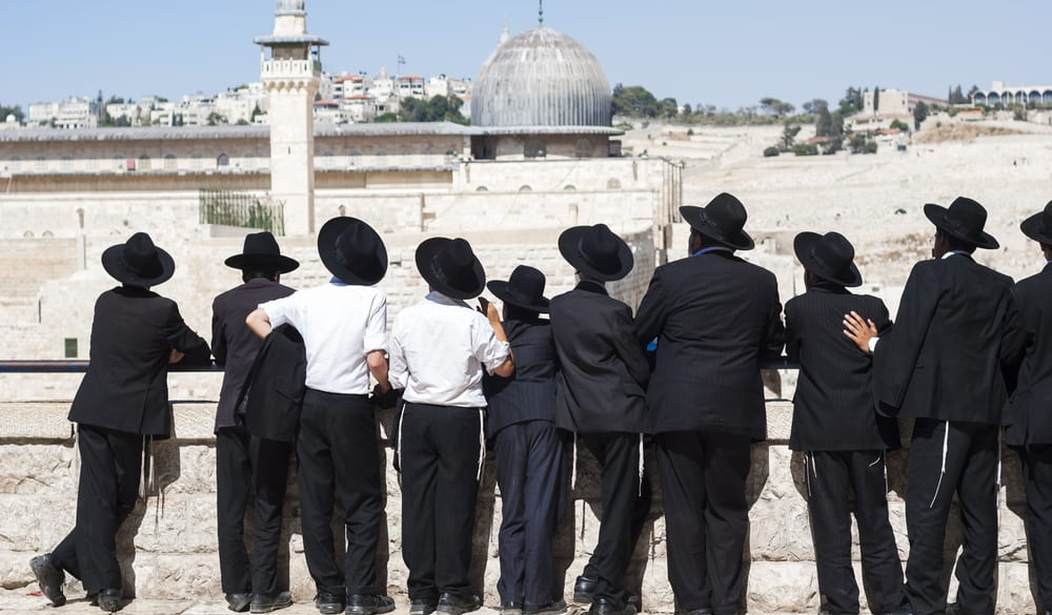One of the things Jews love worrying about is the future of the Jewish community. Every few years a new study is released, analysts dig in, and writers looking for juicy headlines sniff out the fear between the numbers to generate headlines like “American Jewish Population Rapidly Becoming More Orthodox” and “Dramatic Orthodox Growth is Transforming the American Jewish Community.” Boogedy-boogedy-BOO!
If you’re fortunate enough, a pragmatist or two will come along to knock some sense into the headlines. This time around the role of the pragmatist has been played by Jerusalem Post editor Seth Frantzman, who keenly observes, “Sorry, Pundits. Non-Orthodox American Jews Are Here to Stay.” So, what’s the deal? Who’s telling the truth? Will non-Orthodox Jews in America soon cease to exist? Do the Orthodox truly hold sway over Jewish life?
As with all Jewish questions, the answer really depends on whom you ask and what type of answer you’re looking for. If you’re a numbers person, I’ll refer you to Frantzman’s quick and easy breakdown of the numbers everyone else claims to be proof of the Orthodox Jewish population explosion in America. Not only has the Jewish American population remained roughly the same at around 5.2-5.4 million, he also notes that the Orthodox population has actually gone down from 11% in 1971 to 10% in 2015. In other words, no real change has occurred.
If you’re a qualitative person wondering how numbers can be so easily manipulated, I’ll also refer you to Frantzman’s logical explanation of the many reasons why “counting Jews by synagogue attendance or by who their parents say they are before age 18” is grossly ineffective. For the purpose of this analysis, however, I’d like to focus on his assessment of how a religious community works. Like most “liberal” practitioners, non-Orthodox Jews in their teens and twenties who aren’t mandated to attend synagogue (or scared not to) probably don’t attend shul on a regular basis, if at all. This doesn’t de-Judaize them. In fact, as Frantzman points out, synagogue attendance is often a practice – one of many, I’d argue – that comes with age. That is, with the exception of a growing number of Jews who become less observant as they get older: Jews who elect to leave the Orthodox community.
Tagged “OTD” (Off the Derech, or path) formerly-Orthodox Jews make up a growing number of Jewish people who were raised in one of four identified streams of Orthodox Judaism, yet chose to leave the observant world behind as adults. While no one can be sure of their exact number, the group is sizable enough to garner attention from the ultra-Orthodox umbrella organization Agudath Israel of America. It is important to note that nearly 95% of these Jews still identify as Jewish, “even if 60% did not identify with a specific denomination, and instead prefer to call themselves cultural, humanist or secular Jews.”
Their reasons for leaving the Orthodox world directly contradict the assumption that Orthodoxy thrives because of the expectations it places on “responsibilities and obligations” to the community:
The central finding of the study is that many formerly Orthodox Jews… feel “pushed” off the derech by “internal conditions,” such as the place of women in the Orthodox world, perceived double standards, and contradictions in practice and belief. Many respondents also cited personal curiosity about the outside world.
…More than a third of Modern Orthodox women cited the status of women as a reason to leave. Women were generally more likely than men to give reasons for leaving that related to social conditions within the community, such as tendencies to judge, exclude and gossip about people.
So much for holding people to strict religious standards in order to sustain community. If that were the case, should the hypocrites and the yentas be the ones leaving in droves?
The reality is that any community that isn’t sustained by biblical practices will succumb to human nature and fall apart, Orthodox or not. Therefore, the real answer to ensuring the future of the Jewish community should not be blind “observance” but to question what it is you’re observing, how and why. And when it comes to the answer, here’s a hint: “Because we’ve always done it this way” isn’t good enough.









Join the conversation as a VIP Member